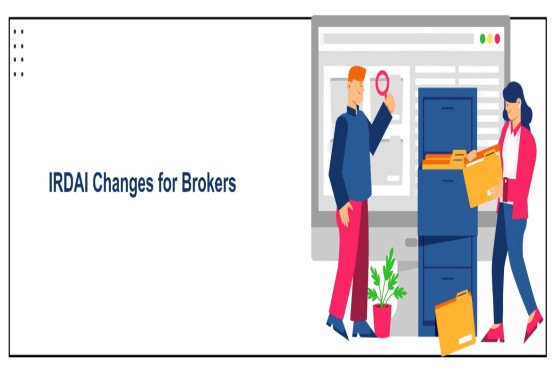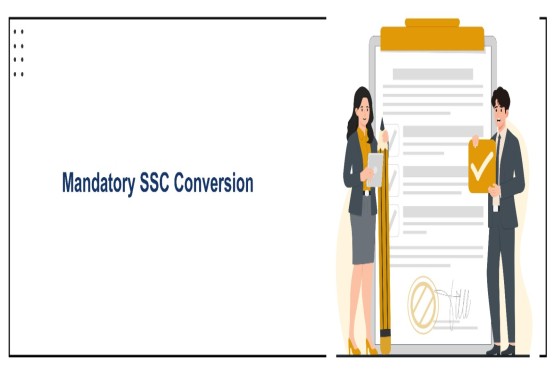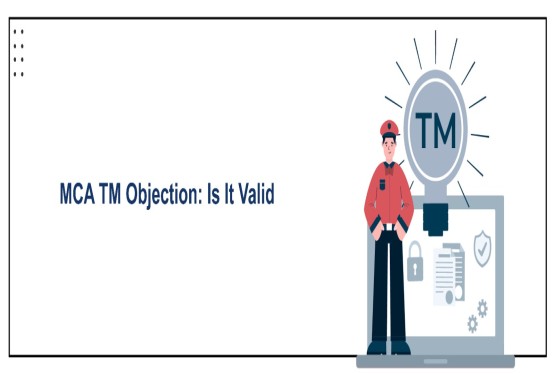Insurance intermediaries play a critical role in enhancing the reach and effectiveness of the insurance sector in India. Among the different types of intermediaries recognized by the Insurance Regulatory and Development Authority of India (IRDAI), the Corporate Agent is a prominent one. A corporate agent is not an individual, but an entity such as a company, bank, or organization authorized to solicit and service insurance business. With the introduction of the IRDAI (Registration of Corporate Agents) Regulations, 2015, the framework for registering and regulating such agents has been clearly laid out to ensure consumer protection, transparency, and growth in the insurance industry.
Definition of a Insurance Corporate Agent
According to Regulation 2(b) of the IRDAI (Registration of Corporate Agents) Regulations, 2015, a "Corporate Agent" refers to any entity or person that holds a valid certificate of registration from the IRDAI to solicit and service insurance business. This can include business under life insurance, general insurance, or health insurance categories. A corporate agent acts as a bridge between the insurance company and the customer, helping in promoting and servicing insurance policies. The term emphasizes that only registered entities can undertake such business legally and must conform to the rules laid down by the IRDAI.
Entities Eligible to Become a Corporate Agent
Companies Registered under the Companies Act
A company formed under the Companies Act, 2013 or any previous company law can be registered as a corporate agent. These companies must be incorporated with the Registrar of Companies and should possess the infrastructure, trained personnel, and financial strength to handle insurance-related activities. These companies can act as intermediaries, offering insurance products in addition to their primary business services.
Limited Liability Partnerships (LLPs)
A Limited Liability Partnership (LLP) registered under the Limited Liability Partnership Act, 2008 is also eligible to become a corporate agent. LLPs combine the operational flexibility of a partnership with the limited liability feature of a company. Many professional service providers, consulting firms, and financial service providers operate under the LLP model and can become corporate agents to diversify their offerings by including insurance advisory and servicing.
Co-operative Societies
A Co-operative Society registered under the Co-operative Societies Act, 1912 or under any other law governing co-operative societies is eligible to function as a corporate agent. Co-operative societies often operate in rural and semi-urban areas and focus on mutual help, community development, and financial inclusion. By becoming corporate agents, these societies can help their members access affordable insurance products and enhance financial security among low-income groups.
Banking Companies
Banking companies as defined under clause (4A) of section 2 of the Insurance Act, 1938 are among the most active corporate agents. Banks already have a vast customer base, branch network, and financial expertise, making them ideal for distributing insurance products. Their participation in the insurance business through bancassurance models significantly improves insurance penetration across the country.
Corresponding New Banks
Corresponding new banks, as defined under clause (da) of sub-section (1) of section 5 of the Banking Companies Act, 1949, include public sector banks established after the nationalization of banks in India. These banks can act as corporate agents and offer insurance products through their established banking infrastructure. Their rural and semi-urban reach helps expand access to insurance services in areas where private sector participation may be limited.
Regional Rural Banks (RRBs)
Regional Rural Banks (RRBs) established under section 3 of the Regional Rural Banks Act, 1976 are also eligible to become corporate agents. These banks serve the rural population and are engaged in providing credit and banking facilities to farmers, artisans, and small entrepreneurs. By acting as corporate agents, RRBs can also offer insurance products tailored for rural and agricultural needs, promoting social welfare and financial protection in rural areas.
Non-Governmental Organizations (NGOs) and Microfinance Institutions
Non-Governmental Organizations (NGOs) and microfinance institutions that are registered under the Co-operative Societies Act, 1912 or any other relevant law are eligible to be corporate agents. These entities typically work at the grassroots level and focus on poverty alleviation, self-employment, and financial empowerment. Their registration as corporate agents enables them to provide low-cost insurance products to economically weaker sections and self-help groups.
Non-Banking Financial Companies (NBFCs)
Non-Banking Financial Companies (NBFCs) registered with the Reserve Bank of India (RBI) are eligible to act as corporate agents. These entities are already engaged in various financial services such as loans, leasing, asset financing, and wealth management. By acting as corporate agents, NBFCs can offer insurance as part of their comprehensive financial service package, thereby increasing convenience for their customers and boosting their own business revenue.
Any Other Person Recognized by the Authority
IRDAI reserves the right to recognize any other entity or person as a corporate agent if deemed fit. This provision allows the Authority to be flexible and adaptive to emerging business models and structures in the financial services industry. Startups or fintech platforms offering insurance aggregation or embedded insurance solutions could potentially benefit from this category, subject to regulatory approval.
Scope of Activities of Corporate Agents under insurance Sector
Corporate agents are permitted to engage in several important activities under the regulatory framework of IRDAI. Their functions include both solicitation and servicing of insurance products. Solicitation involves marketing, explaining product features, assisting in application processes, and collecting premiums. Servicing includes helping policyholders with policy renewals, claims assistance, alterations, and redressal of grievances. A corporate agent can be registered in one or more categories life insurance, general insurance, and health insurance and can tie up with only one insurer per category to avoid conflict of interest and ensure focused services.
Regulatory Framework and Compliance Requirements
To operate as a corporate agent, the entity must first apply for and obtain a Certificate of Registration from the IRDAI. The certificate is valid for a period of three years and is renewable subject to compliance with rules and submission of necessary documents. The applicant must submit Form CA and pay the prescribed fees. Furthermore, every corporate agent must appoint a Principal Officer who is responsible for compliance, training, and supervision. This officer must be a graduate, undergo mandatory training, and pass an IRDAI-approved examination.
Financial requirements also apply. The corporate agent must maintain a minimum net worth of Rs.50 lakhs and hold professional indemnity insurance to protect against legal liabilities. Additionally, corporate agents must maintain separate books of accounts for their insurance business and submit quarterly and annual returns to the Authority to ensure transparency and regulatory oversight.
Code of Conduct and Ethical Practices
Corporate agents are bound by a strict code of conduct under IRDAI guidelines. They must always act in the best interests of policyholders and ensure complete disclosure of product terms, charges, exclusions, and benefits. Misleading or coercive sales practices are strictly prohibited. Agents must maintain confidentiality of client information and ensure that all solicitations are made in a fair and professional manner. Grievance redressal systems must be established to address consumer complaints promptly and fairly. Adherence to KYC (Know Your Customer) norms and proper documentation is mandatory for compliance and fraud prevention.
Advantages of the Corporate Agency Model
The corporate agency model offers several benefits to the insurance sector and the general public. First, it provides increased outreach through established networks of banks, NBFCs, and co-operatives. This makes insurance accessible even in remote and underbanked areas. Second, it enhances customer convenience by bundling insurance with other financial services, such as loans or savings accounts. Third, it helps reduce distribution costs for insurers and speeds up customer acquisition. Finally, this model plays a significant role in financial inclusion, especially when NGOs and RRBs offer micro-insurance products to low-income households.
Challenges Faced by Corporate Agents in Insurance Sector
Despite their advantages, corporate agents face certain challenges. The restriction to partner with only one insurer per category may limit the product range and competitiveness. There is also a risk of mis-selling due to commission-based incentives or lack of training among sales personnel. Moreover, the increasing regulatory compliance burden requires investments in systems, reporting tools, and trained manpower. Corporate agents must continuously upgrade their staff skills and align their business models with evolving regulatory expectations and digital trends.
Recent Developments and Trends
Recent trends indicate that IRDAI is encouraging technology-driven innovation in insurance distribution. Corporate agents are now adopting digital tools for onboarding, policy servicing, and customer interaction. Fintech platforms and digital-first NBFCs are also exploring corporate agency models to integrate insurance into mobile apps and web platforms. Bancassurance continues to be a dominant force, but emerging players like e-commerce platforms and payment banks are also being recognized for their potential in distributing insurance.
Conclusion
The Corporate Agent model under the IRDAI (Registration of Corporate Agents) Regulations, 2015 is a significant contributor to the growth and penetration of insurance in India. By allowing companies, banks, NGOs, and financial institutions to act as intermediaries, the regulatory framework has opened doors for structured, ethical, and widespread insurance distribution. With the right balance of regulatory compliance, ethical sales practices, and customer service, corporate agents can serve as trusted partners in providing financial protection to millions of Indians. As the insurance sector evolves, the corporate agency model will continue to play a pivotal role in building a resilient and inclusive insurance ecosystem.
FAQs
Q1. What is a Corporate Agent in the insurance sector?
Ans. A Corporate Agent is an entity (not an individual) registered with the IRDAI to solicit and service insurance business in the categories of life, general, or health insurance. They act as intermediaries between insurance companies and customers.
Q2. Under which regulation are Corporate Agents governed?
Ans. Corporate Agents are governed by the IRDAI (Registration of Corporate Agents) Regulations, 2015.
Q3. Who can become a Corporate Agent in India?
Ans. Entities eligible to become Corporate Agents include:
-
Companies registered under the Companies Act, 2013 (or previous company law)
-
LLPs registered under the LLP Act, 2008
-
Co-operative Societies registered under applicable laws
-
Banking companies
-
Corresponding new banks under the Banking Companies Act, 1949
-
Regional Rural Banks (RRBs)
-
NGOs and microfinance institutions
-
NBFCs registered with the RBI
-
Any other person recognized by IRDAI
Q3. Can an individual become a Corporate Agent?
Ans. No, only entities (not individuals) such as companies, banks, LLPs, or societies can register as Corporate Agents.
Q4. Can a Corporate Agent represent multiple insurers?
Ans. A Corporate Agent can be tied up with only one insurer in each category:
-
One life insurer
-
One general insurer
-
One health insurer
Q5. What are the main functions of a Corporate Agent?
Ans. Corporate Agents:
-
Solicit and market insurance products
-
Assist in policy issuance and renewals
-
Provide post-sale services
-
Address customer grievances
-
Support claims servicing
Q7. What is the validity period of the Corporate Agent registration?
Ans. The Certificate of Registration issued by IRDAI is valid for three years, after which it must be renewed.
Q8. What is the minimum net worth requirement to become a Corporate Agent?
Ans. The minimum net worth requirement for a corporate agent is Rs.50 lakhs.
Q9. What is a Principal Officer and what are their qualifications?
Ans. The Principal Officer is the designated person responsible for compliance, supervision, and training. They must:
-
Be a graduate
-
Undergo IRDAI-specified training
-
Pass the IRDAI certification examination
Q10. Is professional indemnity insurance required?
Ans. Yes, corporate agents are required to maintain professional indemnity insurance to protect against errors, omissions, or negligence in their insurance advisory services.
Q11. What type of agreements must a Corporate Agent enter into?
Ans. A Corporate Agent must enter into a formal agreement with the insurer it is tied with, detailing the terms of engagement, scope of services, fees, and responsibilities.
Q12. Are Corporate Agents allowed to cross-sell insurance with other financial services?
Ans. Yes, especially in cases like banks or NBFCs, they are allowed to cross-sell insurance alongside loans, savings, or investment services, provided regulatory norms are followed.
Q13. What are the compliance requirements for Corporate Agents?
Ans. Corporate Agents must:
-
Maintain separate books of accounts for insurance business
-
File quarterly and annual returns to IRDAI
-
Adhere to the IRDAI’s code of conduct
-
Ensure proper documentation and KYC compliance
Q14. Can NGOs or microfinance institutions become Corporate Agents?
Ans. Yes, NGOs and microfinance institutions registered under the Co-operative Societies Act or relevant laws can be Corporate Agents, enabling them to offer micro-insurance to underserved populations.
Q15. What are the major advantages of the Corporate Agency model?
Ans. The model:
-
Increases insurance penetration
-
Leverages existing customer networks
-
Promotes financial inclusion
-
Offers convenience and cost efficiency
-
Builds trust through known institutions like banks and co-ops
Q16. What are the challenges associated with Corporate Agents?
Ans. Some key challenges include:
-
Restricted tie-up with only one insurer per category
-
Risk of mis-selling due to commission-driven sales
-
Regulatory compliance burden
-
Need for continuous staff training
Q17. What types of insurance can Corporate Agents sell?
Ans. Corporate Agents can register to sell:
-
Life Insurance products
-
General Insurance products (like motor, travel, home)
-
Health Insurance products
Q18. Can fintech companies become Corporate Agents?
Ans. Yes, fintech companies or startups may be recognized as corporate agents by IRDAI under the "any other person" category, subject to compliance and approval.
Q19. What is the role of IRDAI in regulating Corporate Agents?
Ans. IRDAI:
-
Grants and renews registration
-
Monitors compliance
-
Prescribes code of conduct
-
Takes disciplinary actions for violations
-
Issues guidelines for ethical and transparent operations
Q20. How does a Corporate Agent differ from an Insurance Broker?
Ans. A Corporate Agent represents only one insurer per category (life, general, health).
-
An Insurance Broker represents the client and can work with multiple insurers to offer the best-fit product.











































































_crop10_thumb.jpg)


































































_crop10_thumb.jpg)
_crop10_thumb.jpg)



_crop10_thumb.jpg)


_crop10_thumb.jpg)





_crop10_thumb.jpg)

_crop10_thumb.jpg)














-suratgujarat-section-158_crop10_thumb.jpg)
-suratgujarat_crop10_thumb.jpg)
-(33)_crop10_thumb.jpg)



-ahmedabad_crop10_thumb.jpg)
-learn_crop10_thumb.jpg)

-learnn_crop10_thumb.jpg)



























































_crop10_thumb.jpg)























_Guidelines_learn_crop10_thumb.jpg)























_learn_crop10_thumb.jpg)
_crop10_thumb.jpeg)










_crop10_thumb.jpg)




_Second_Amendment_Rules,_2025_learn_crop10_thumb.jpg)







_learn_crop10_thumb.jpg)











































_learn_crop10_thumb.jpeg)























_learn_crop10_thumb.jpg)



_rd_roc_learn_crop10_thumb.jpg)
















_learn_crop10_thumb.jpg)














_learn_crop10_thumb.jpg)
_Learn_crop10_thumb.jpg)











































_learn_crop10_thumb.jpg)




_learn_crop10_thumb.jpg)













_crop10_thumb.jpeg)




















